The work to unravel the legacy of violence is long-term and complex, and Indonesia still refuses to officially acknowledge its bloody past. Plans for a truth and reconciliation commission, discussed in the early days after the fall of General Soeharto in 1998, have been all but abandoned.
However, since reformation, survivors of 1965 have taken an active role in speaking out about the violations they experienced, and demanding justice and acknowledgement. Survivors pushed for an inquiry by Indonesia’s national human rights commission, which was completed in 2012 and concluded crimes against humanity had been committed. A civil-society led truth-seeking process organized public hearings, data gathering, and the launch of a final report, “Reclaiming Indonesia.” Recently, there has been an increase in incidences of elderly survivors who have gathered to support each other being attacked by so-called anti-communist groups.
This photo exhibition is a result of a participatory research, which involved female survivors of the 1965 crimes against humanity. A total of 26 women and children of political prisoners of 1965 participated. Many women survivors from 1965 shared their stories of violence and discrimination. This is not a new finding, and confirms existing research about forms of gender-based violence experienced by women. What have been most interesting are the after life struggles and triumphs of these women survivors. One of the approaches of this research is the photo taking and storytelling. The portraits and stories are presented in this exhibition.
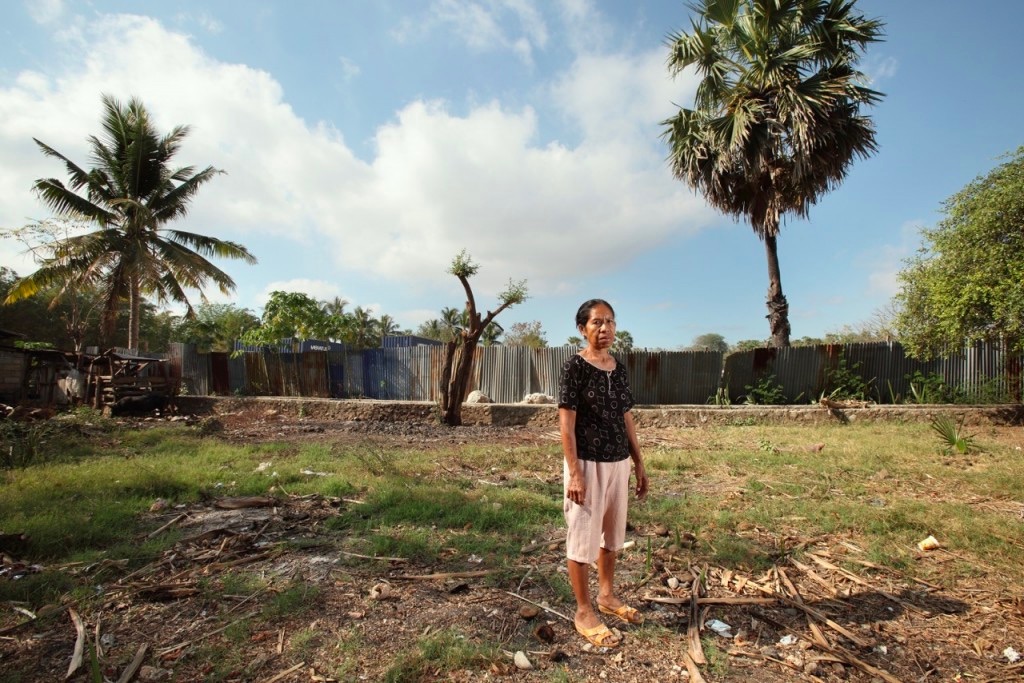
Frangkina Boboy
(Kupang)
“My father was not allowed to work outside
the house. If they saw him, they could beat
him to death. My mother was nursing
the baby. I was 15 years old.
That’s why I had to be the father:
I worked in the rice paddy and tilled the land
[to farm]… My father had land
in Lasiana—a house and rice fields—but
because he was accused of being a communist,
his family took it. We had nothing,
and had to squat on land that was actually
owned by my parents.”
Migelina A. Markus
(Kupang)
“The ‘65 tragedy made us lose our parents, my older brother, and there were a lot of disappearances without any trial or evidence [showing] they had betrayed the state or nation. I want to testify so that people know the truth about the events we experienced.
My younger siblings are scared and think the matter is finished because they have prayed and surrendered to God. I say to them, “With God of course it is finished, but people do not yet know the truth.” I must set things straight by sharing my story so they don’t write a false history about us . . . My task is to tell the truth so that this bitter history will not be repeated.”
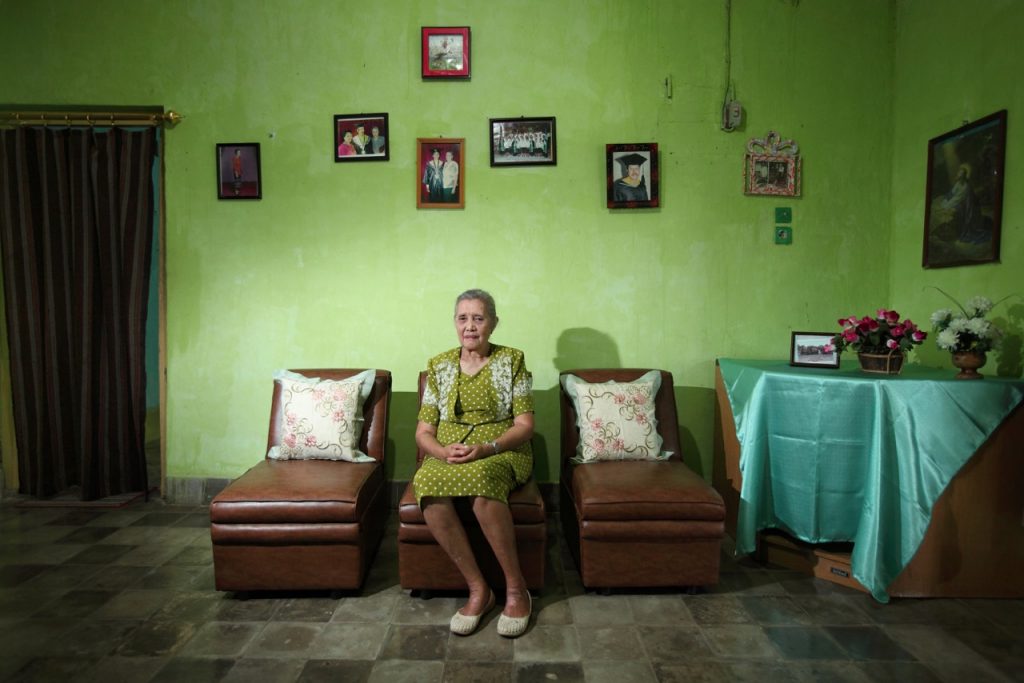
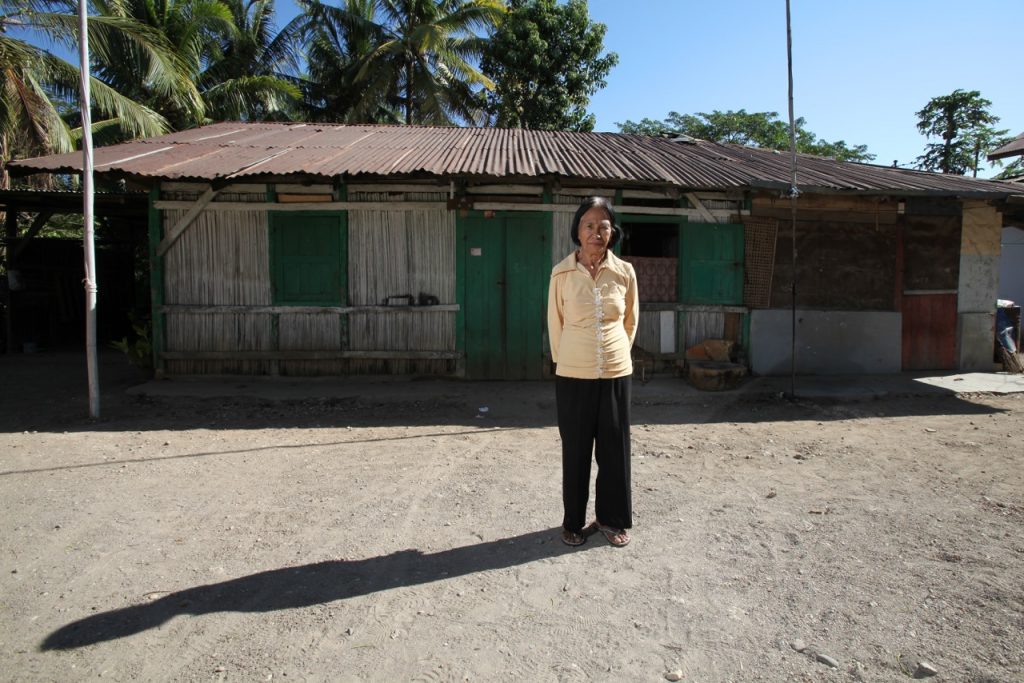
Vena Taka
(Kupang)
“I didn’t know that my dad and younger brother had been detained, where they had been killed. Even where they had been buried, I didn’t know.”
Madalena
(Buru Island)
“Even today, we don’t feel like we’ve been acknowledged. The term PKI or political prisoners is still mentioned until now. There is a label on us…. In the end, everything was lost: (our) civil rights and family split up.”
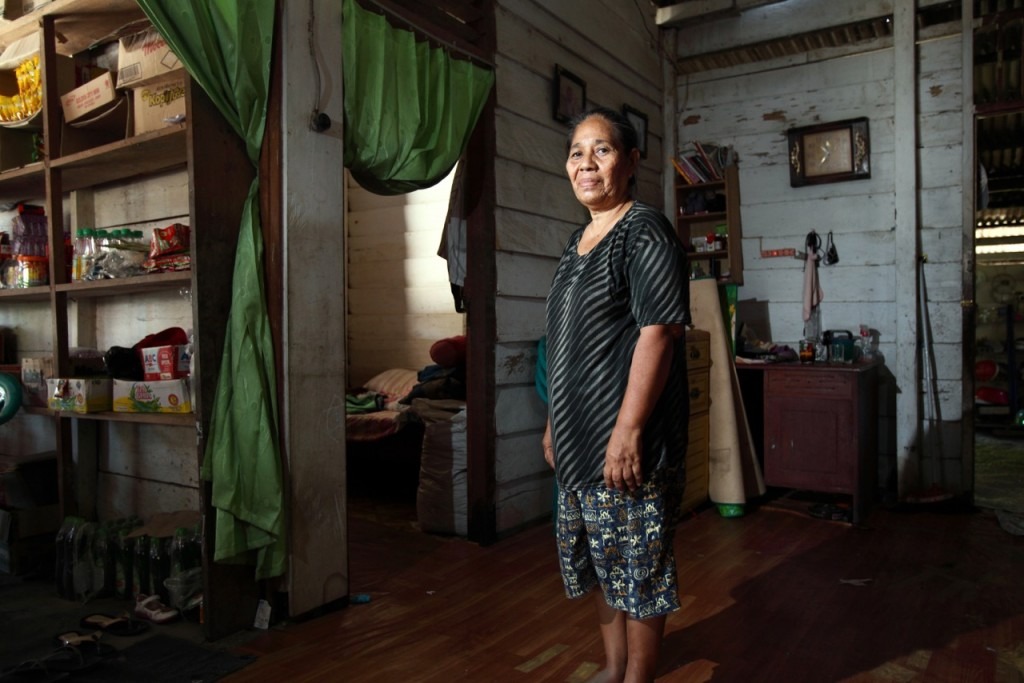
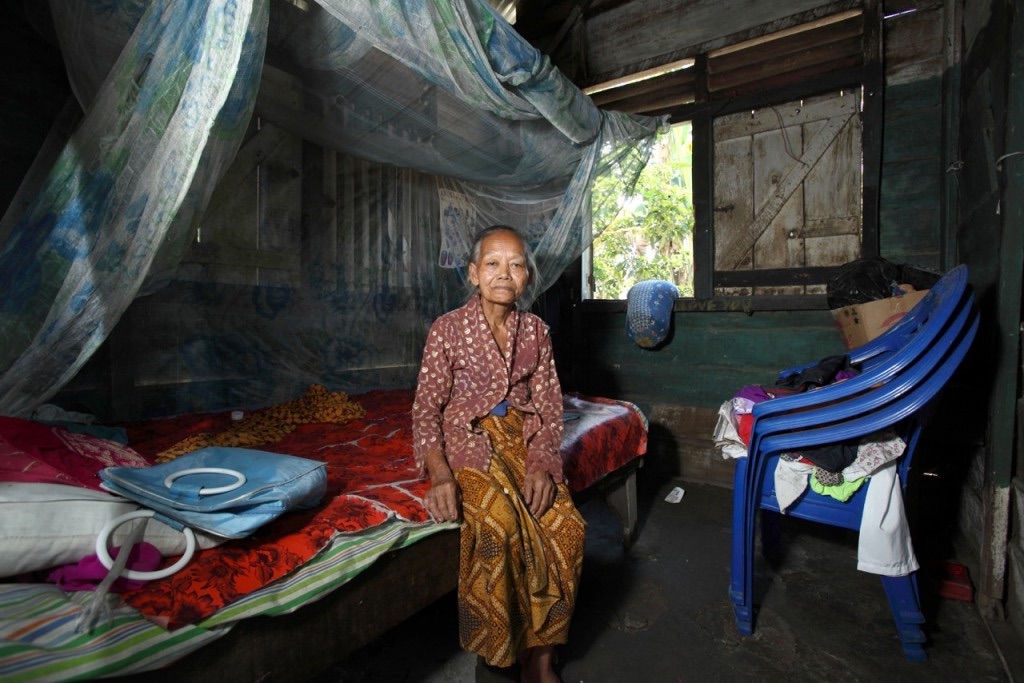
Lasinem
(Buru Island)
“[My husband] was picked up by soldiers, his own friends, and taken to the village office (Kelurahan). He was beaten, sat upright in a chair and beaten. His back was trampled on until he was wounded all over. At first I was confused and scared, terrified, and I realized I had lost my protector, and my source of financial support. What about my young children? They need to eat!…I’m still wounded because I remember things that happened in the past… There is still a wound in my heart.”
Sri
(Buru Island)
“(In Java), after my father was arrested, our house was searched a number of times, even above the ceiling. I don’t know what they were looking for, but cupboards were emptied of their contents and we were very disturbed, annoyed, angry, confused, and eventually frightened. Our house was never peaceful again. We were scared to be at home when they kept coming. My husband always helps me. He usually helps me to make the dough because I am too exhausted to do it. He always supports me. We don’t produce bread everyday; only twice or three times in a week.”
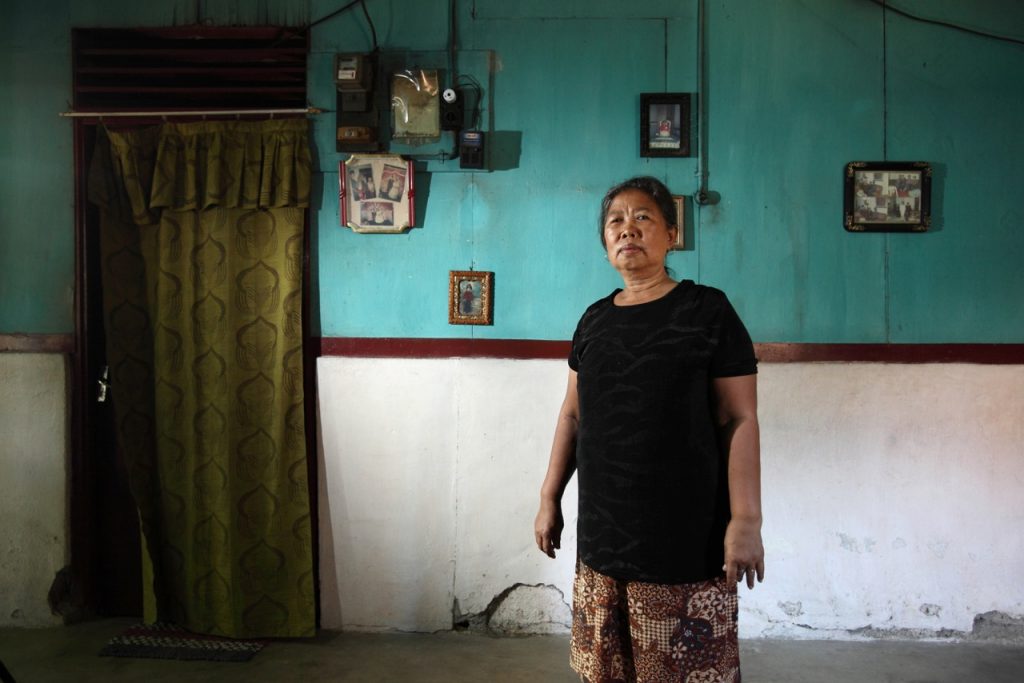
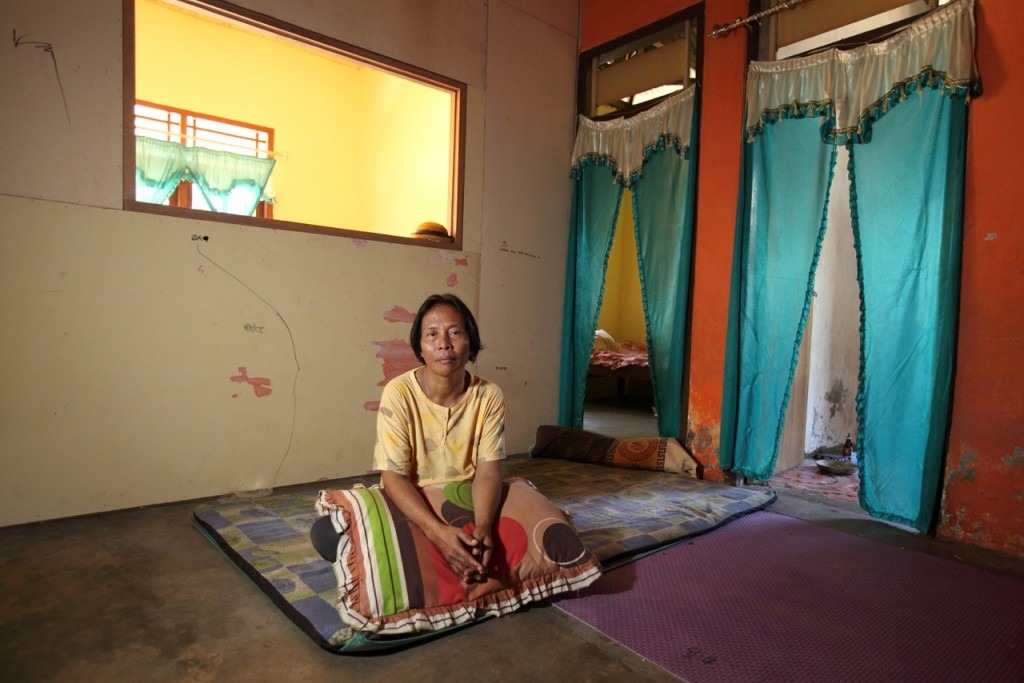
Rodiah
(Buru Island)
“Before I arrived I thought I would live a nice life, I had already imagined a comfortable life. It turned out I was coming to a jungle…the first time we came to the house there was tall alang-alang grass growing inside… At night we were frightened of the guards. They would look at the young girls so we got scared, and our uncles (i.e other prisoners) did too. The majority here were men. We women were scared to go out at night.”
Sudarsini
(Buru Island)
“What we want to do together is to address the pain. We also want to encourage…the women to gather more often, because in gathering, we don’t feel alone; we feel that we have friends that share the same experiences, and feel solidarity…I also want to fight for justice that has been ignored by the government.”
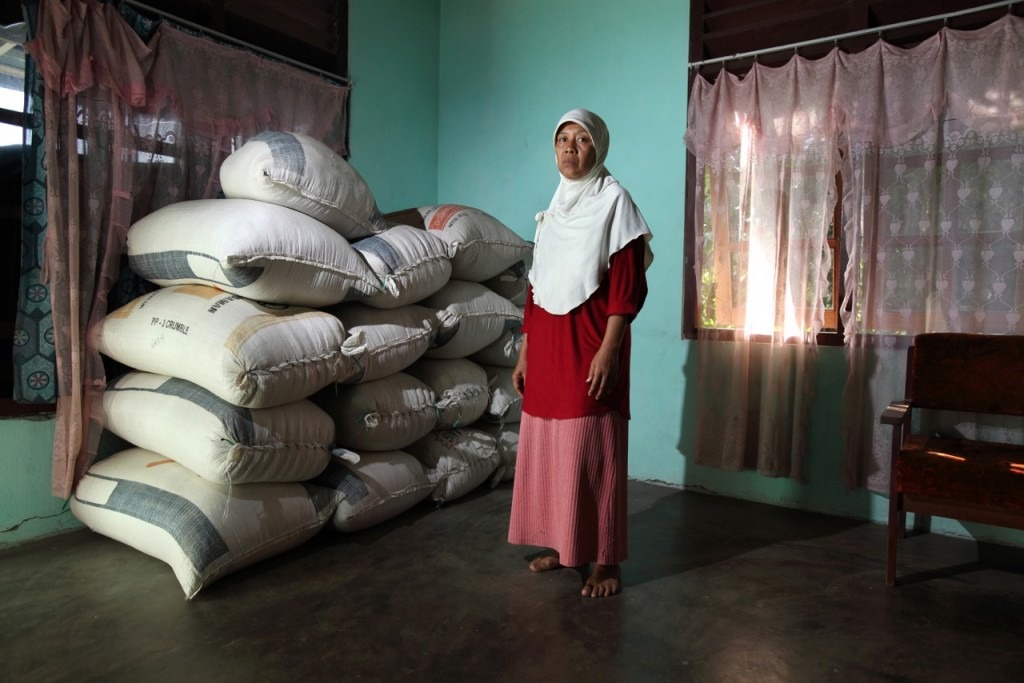
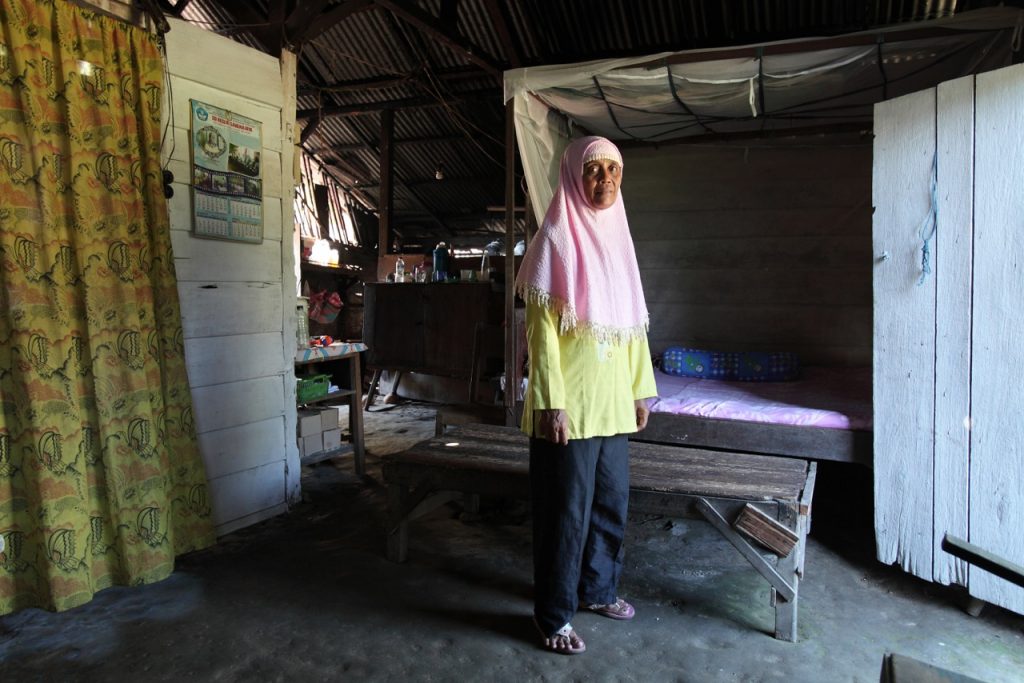
Suhartini
(Buru Island)
“I was married in a mass wedding in 1977. On the marriage certificate, my husband’s occupation was written as G30S prisoner. It was like I was punished all my life for that being written on our wedding record….I feel sorry for my husband…He was just a civil servant in Surabaya who didn’t know anything…He was arrested, tortured, jailed and exiled to Buru Island because he allegedly was involved in the G30S/PKI events in Jakarta.
The description of his occupation as a PKI political prisoner reminds me of all the days of teasing, suffering and unanswered questions. Up until now I do not understand why my father, who worked as a teacher, and my husband, who was a civil servant, were arrested, tortured and thrown into jail.”
Ngabinem
(Buru Island)
“(When my husband was taken to Buru) I often couldn’t sleep at night, I thought about my children at their grandmother’s house. My heart was anxious, my thoughts erratic… I could only pray to God to provide a way out. I wanted to live together with my husband and children…in one house again…that was my constant prayer. Now our land has been claimed by people here, even though my husband had always made it clear which land was ours and which was owned by the people in the neighborhood. If they take my land, where would I go?”
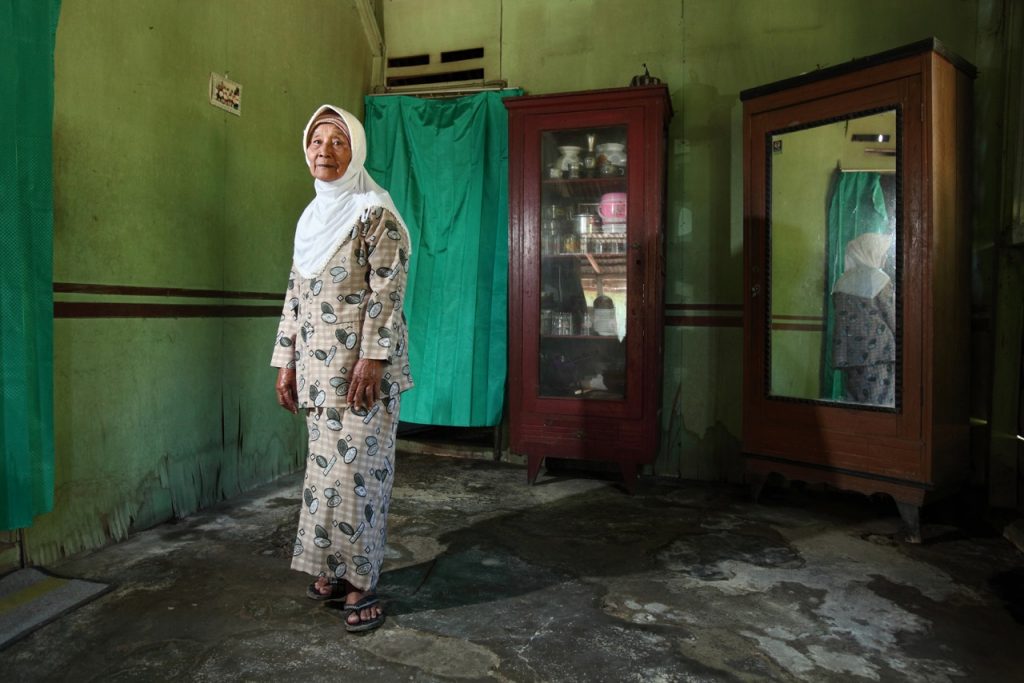
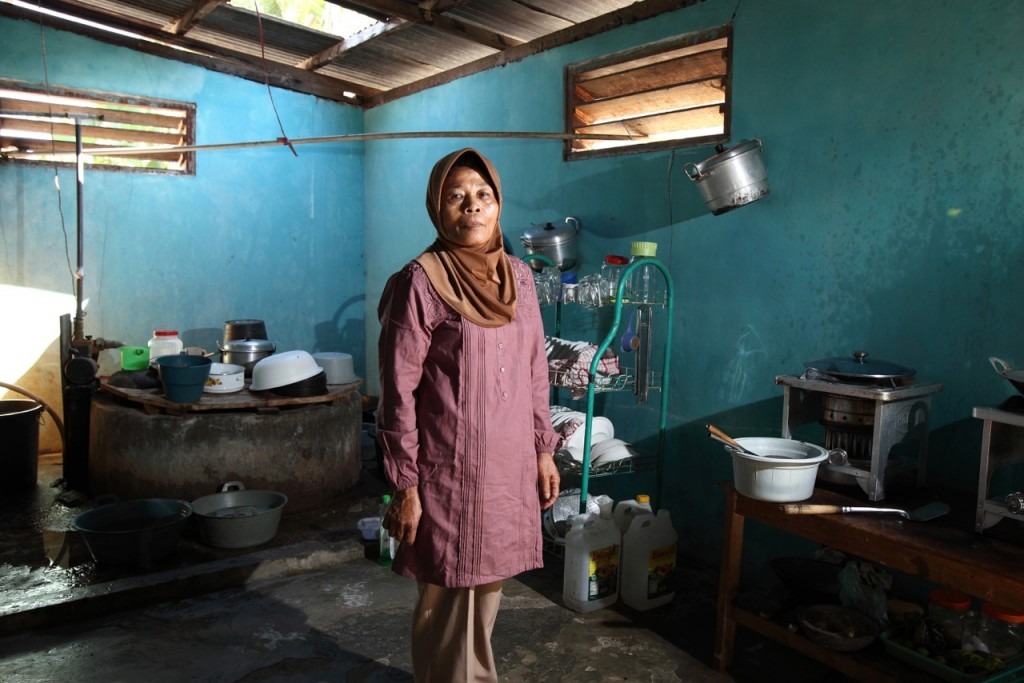
Juariah
(Buru Island)
“If we go to certain places, there is talk of the past and we feel like we have been stabbed. If I hear talk about G30S/PKI I become very emotional… I can not forget, maybe I will always remember”
Subiayanti
(Buru Island)
“Maybe because (my son) is a grandchild, not a child, of a political prisoner like us [and] my current husband is not an ex-political prisoner, [but] the teasing about being an ‘anak PKI’ is lessening.”
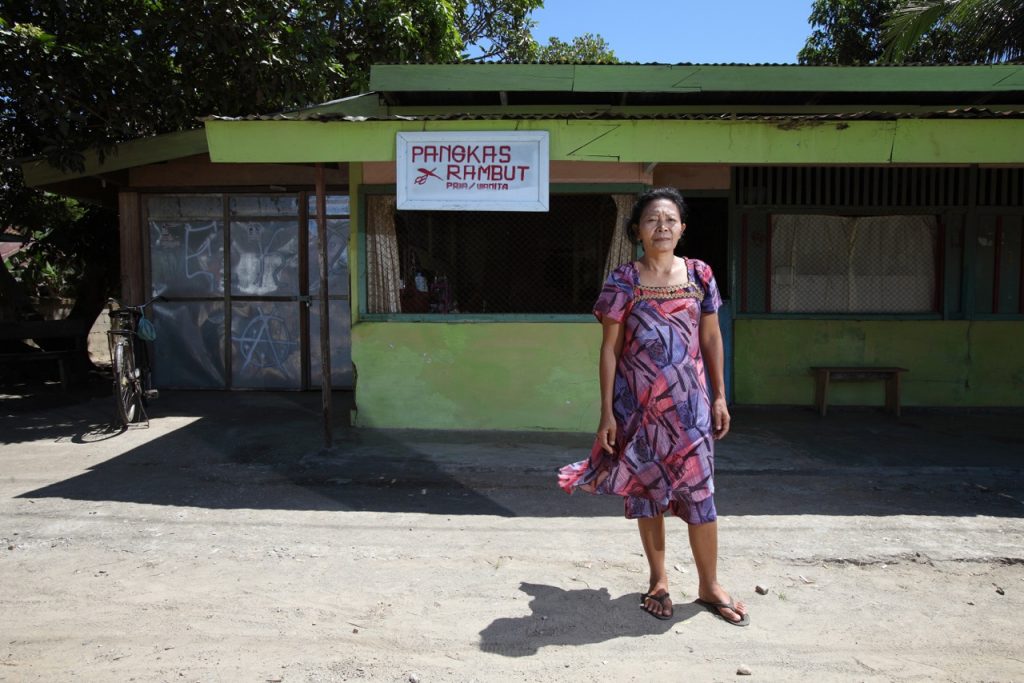
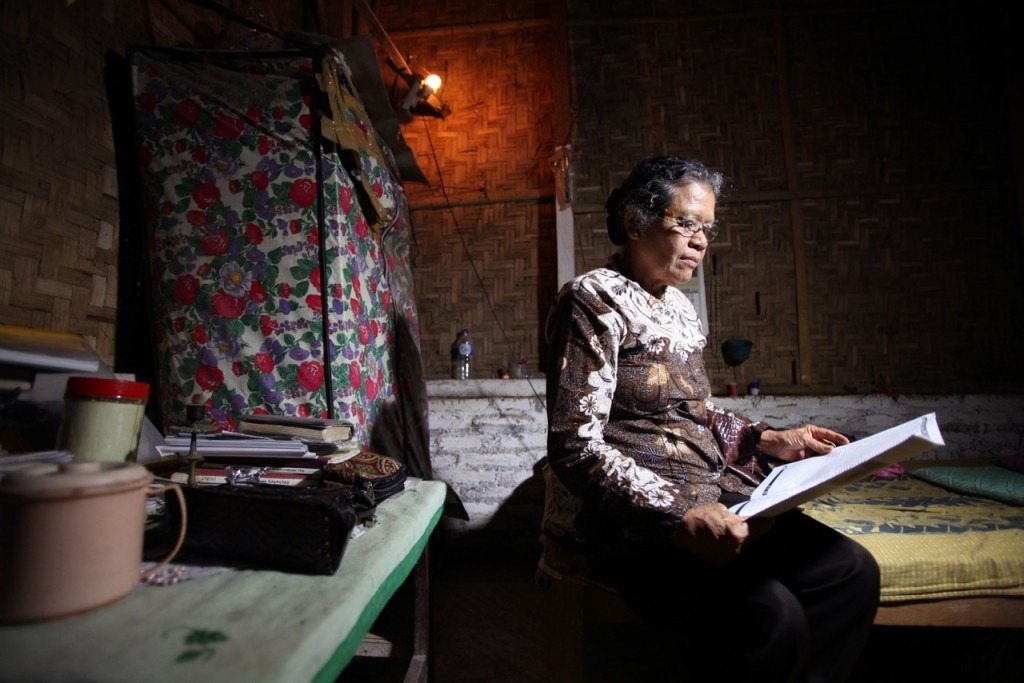
Kadmiyati
(Yogyakarta)
“When will there be justice? Who is sadistic and cruel? The communists? Or the perpetrators of the killings? Find out the truth.”
Hartiti
(Yogyakarta)
“My first child was old enough to understand her mother’s suffering. She thought about it until she died. She also often heard news about me. She died because she heard people saying things that hurt her.”
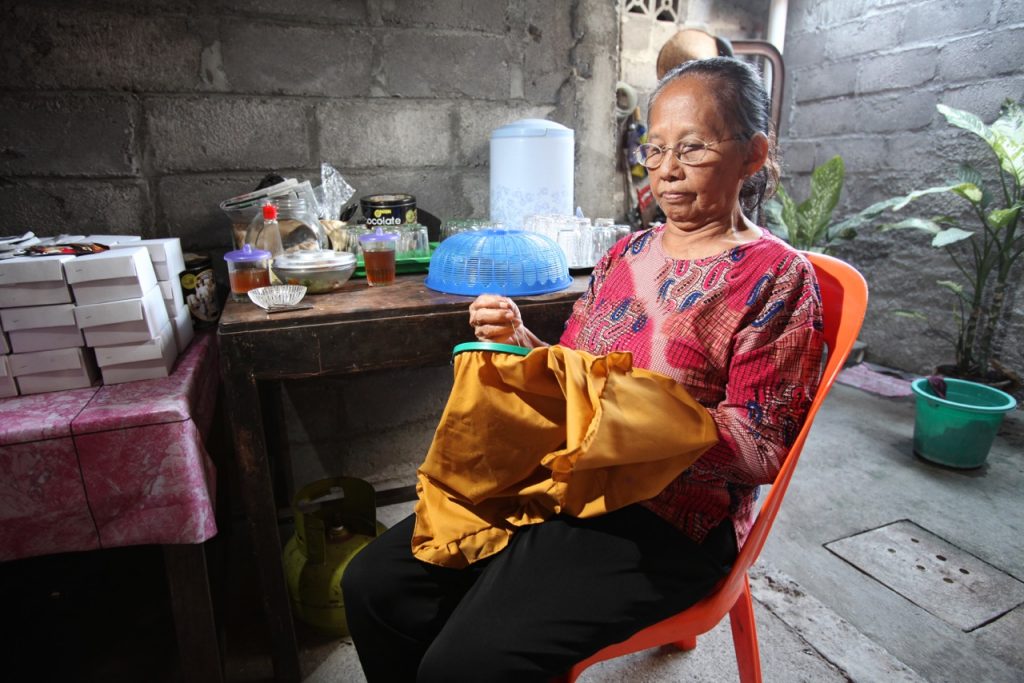
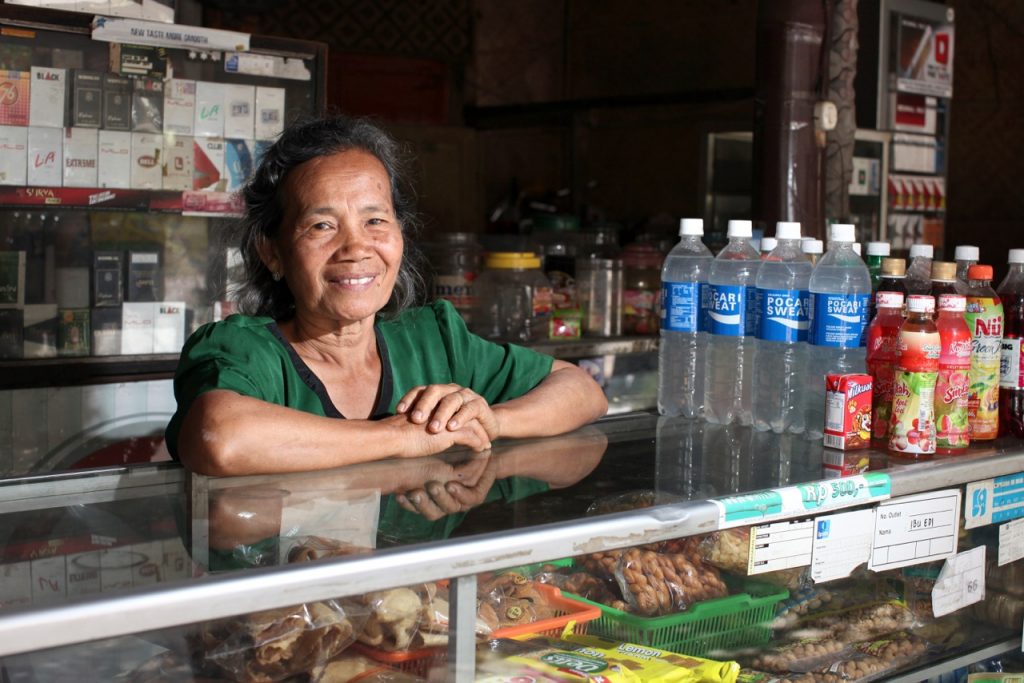
Christina Sumarmiyati
(Yogyakarta)
“During the investigation I was stripped naked on a table. They burned my pubic hair and the hair on my head. I passed out, and when I woke up I was herded to the Military Police Corp jail in Yogyakarta at four in the morning. I was put in a cell and handcuffed to a man who was in there.
On the second day we were interrogated together… They stripped us both. I was ordered to sit on his lap naked, or confess. Then they picked me up and put me on his lap in a sexual position. They laughed in satisfaction… I can understand if this was an occupation, but this was done by my own people. What they did to me was outside the realm of humanity.”
Oni Ponirah
(Yogyakarta)
“I was told I was only being taken in for questioning. It turns out I was held for 14 years. From 1965 until end of December 1979… We never got justice. I hope the government will apologize to the victims.”
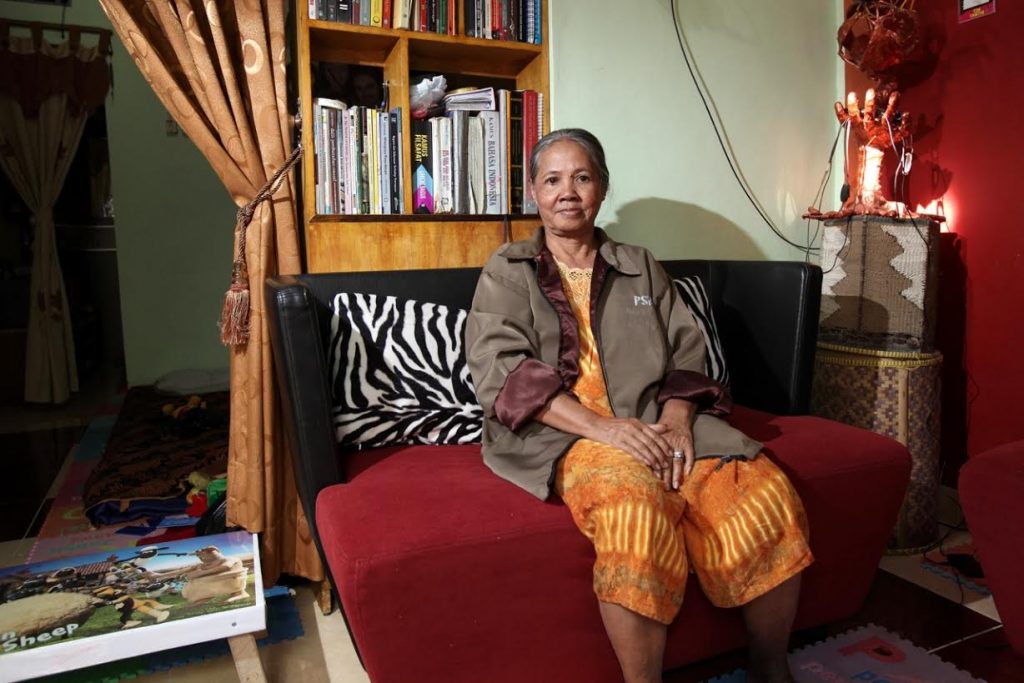
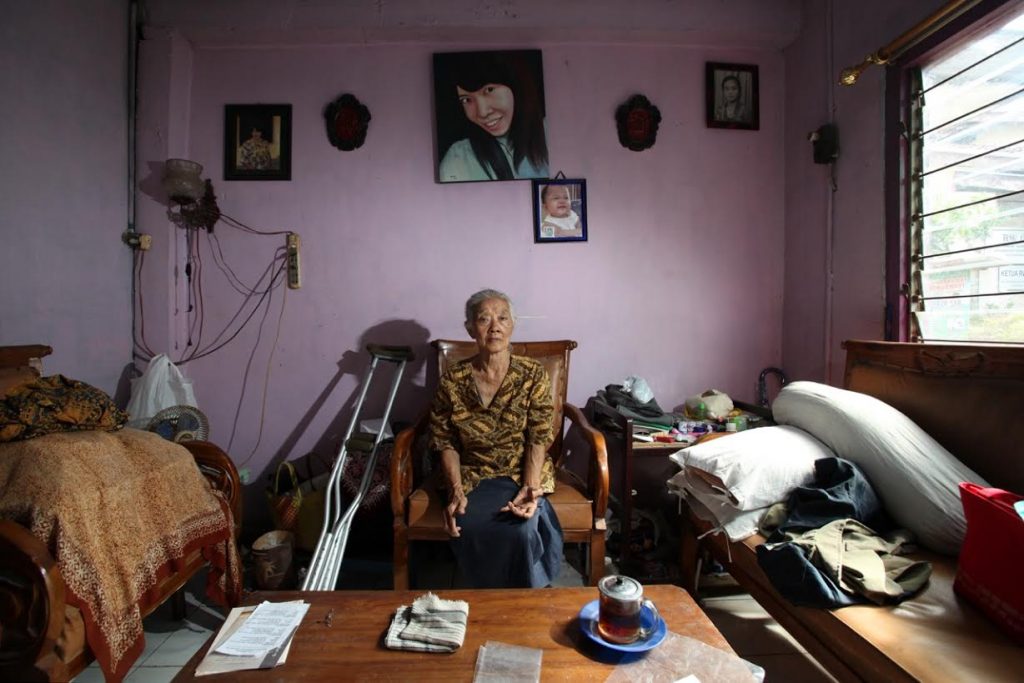
Sri Wahyuningsih
(yogyakarta)
“In Wirogunan, I cried… I cried so… When I was beaten I didn’t cry, but in Wirogunan I cried. Why did I cry? Outside the door where we all slept, there was a can and a gutter. The gutter was full of excrement, so when we went out, you know, the filth was just unbearable. The stench. That’s what made me cry.”
Sumilah
(Yogyakarta)
“I sell satays and curry in the Prambanan Market. The limits on my capital mean the proceeds are only just enough to live off of.”
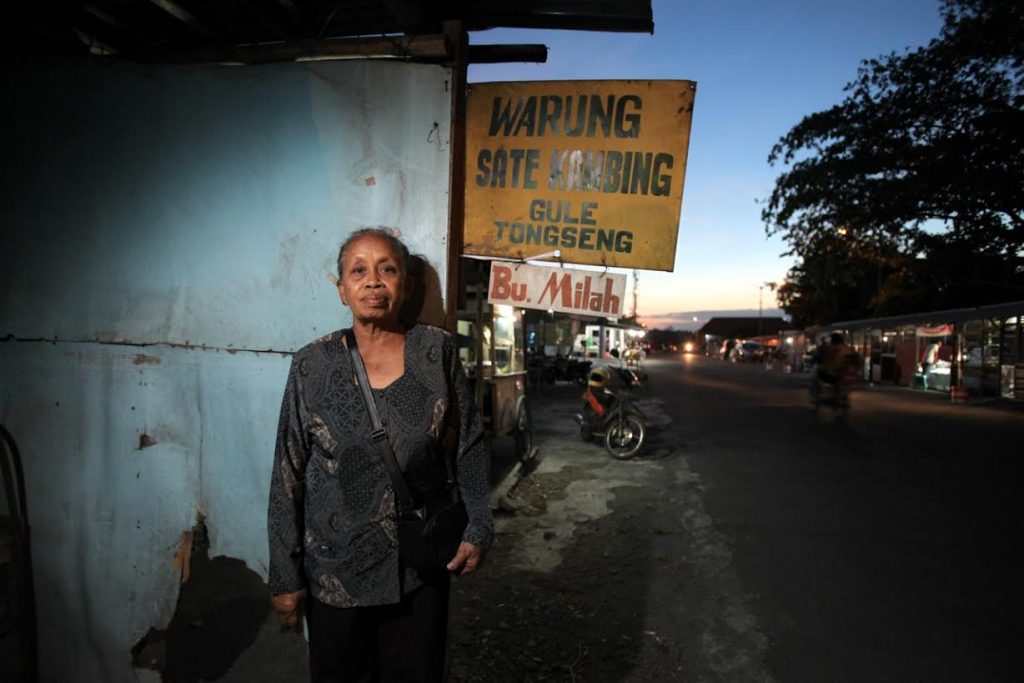
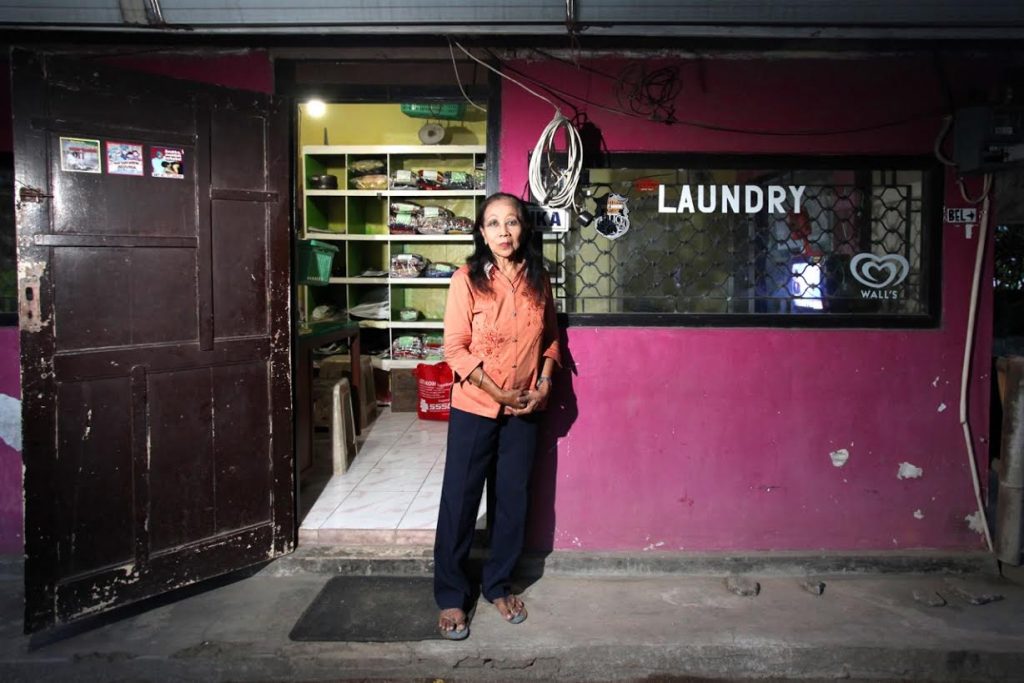
Sri Lestari
(Yogyakarta)
“I want to forget and not discuss what happened before.”